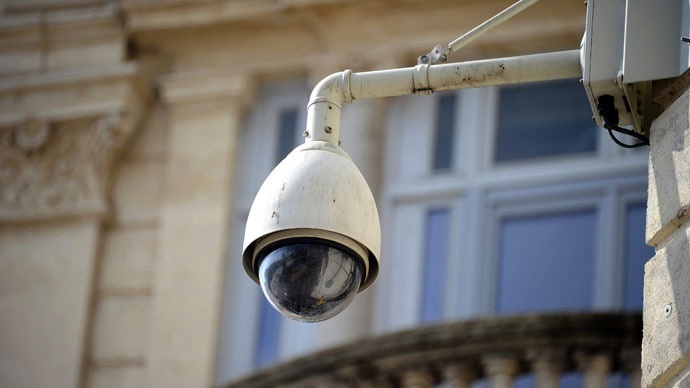Fusion center director: We don’t spy on Americans, just anti-government Americans

A so-called fusion center is an information sharing center, many of which were jointly created between 2003 and 2007 under the U.S. Department of Homeland Security and the Office of Justice Programs in the U.S. Department of Justice. They allegedly are designed to promote information sharing at the federal level between agencies such as the Central Intelligence Agency (CIA), Federal Bureau of Investigation (FBI), U.S. Department of Justice, U.S. military, and state- and local-level government. As of July 2009, the U.S. Department of Homeland Security recognized at least 72 fusion centers. Fusion centers may also be affiliated with an Emergency Operations Center that responds in the event of a disaster.
From [HERE] Law enforcement intelligence-processing fusion centers have long come under attack for spying on Americans. The Arkansas director wanted to clarify the truth: centers only spies on some Americans – those who appear to be a threat to the government.
In trying to clear up the ‘misconceptions’ about the conduct of fusion centers, Arkansas State Fusion Center Director Richard Davis simply confirmed Americans’ fears: the center does in fact spy on Americans – but only on those who are suspected to be ‘anti-government’. “The misconceptions are that we are conducting spying operations on US citizens, which is of course not a fact. That is absolutely not what we do,” he told the NWA Homepage, which supports KNWA-TV and Fox 24.
After claiming that his office ‘absolutely’ does not spy on Americans, he proceeded to explain that this does not apply to those who could be interpreted as a ‘threat’ to national security. Davis said his office places its focus on international plots, “domestic terrorism and certain groups that are anti-government. We want to kind of take a look at that and receive that information.”
But the First Amendment allows for the freedom of speech and opinion, making it lawfully acceptable for Americans to express their grievances against the US government. The number of anti-government groups even hit a record high in 2012, according to the Southern Poverty Law Center. Many of these groups are ‘hate groups’ that express disdain for minorities. But unless they become violent, these groups are legally allowed to exist.
“We are seeing the fourth straight year of really explosive growth on the part of anti-government patriot groups and militias,” Mark Potok, senior fellow at the SPLC, told Mother Jones. “That’s 913 percent in growth. We’ve never seen that kind of growth in any group we cover.”
And with a record-high number of anti-government groups, fusion centers may be spying on more Americans than ever before – or at least, have the self-proclaimed right to do so.
“I do what I do because of what happened on 9/11,” Davis said. “There’s this urge and this feeling inside that you want to do something, and this is a perfect opportunity for me.”
But Davis’ argument is flawed: in order to determine whether or not someone is considered a threat to national security, fusion centers would first have to spy on Americans to weed out the suspected individuals, and then proceed to spy on the ‘anti-government’ individuals further.
Across the US, fusion centers have reported on individuals who conducted ‘crimes’ like putting political stickers in public bathrooms or participating in movements against the death penalty. In October, the bipartisan Senate Permanent Subcommittee on Investigations finished a two-year investigation on fusion centers, only to find that the centers had directly violated constitutionally protected civil liberties.
“In reality, the Subcommittee investigation found that the fusion centers often produced irrelevant, useless or inappropriate intelligence reporting to DHS, and many produced no intelligence reporting whatsoever,” the report stated.
And the privacy violations could soon become worse: RT previously reported that the FBI’s proposed facial recognition project could provide fusion centers with more personal data to work with. With at least 72 fusion centers across the US and technology that could further infringe upon privacy rights, government agencies will be able to more efficiently collect data on Americans solely for exercising their freedom of speech.